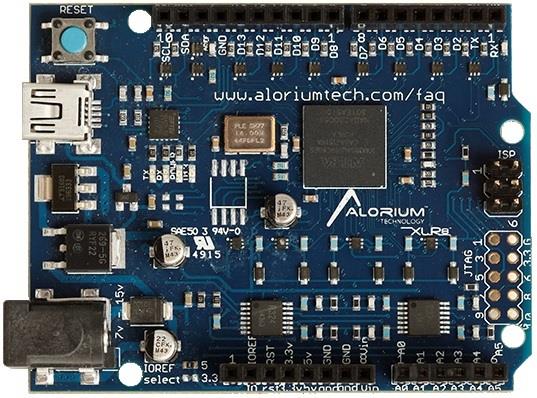By Graham Prophet
EDN Europe
Mouser Electronics has announced a global distribution agreement with Alorium Technology (Eau Claire, Wisconsin, USA), producers of the XLR8 development board which integrates an ATmega328-compatible microcontroller core and custom accelerator blocks on a field-programmable gate array (FPGA).

The board, Mouser says, allows developers to capitalize on the ease-of-use of the Arduino ecosystem with the hardware acceleration of an FPGA. The XLR8 is an Arduino-compatible board that hosts an Altera MAX 10 FPGA as its main processing chip. The FPGA implements an ATmega328-compatible MCU core and leaves room for developers to implement custom logic as Xcelerator Blocks (XBs) that can be integrated into the reconfigurable FPGA and interfaced directly to the processor. The XLR8’s FPGA-based hardware acceleration and offload results in significantly improved performance in the same physical footprint, using the same tool chain as standard Arduino Uno boards. Sketches designed for Arduino-compatible boards will also run on XLR8, so developers can load code directly to XLR8 via the Arduino integrated development environment (IDE) and use Arduino-compatible shields.
The XLR8 board includes libraries for the Arduino IDE that make using the XBs as simple as adding a single include statement to an Arduino sketch. With XBs, developers can run in a fraction of the clock cycles required to execute the same function in software. With shorter times to complete complex tasks in hardware, the XLR8 makes more clock cycles available for additional software functions, leading to faster computational speed and overall improved application performance.
